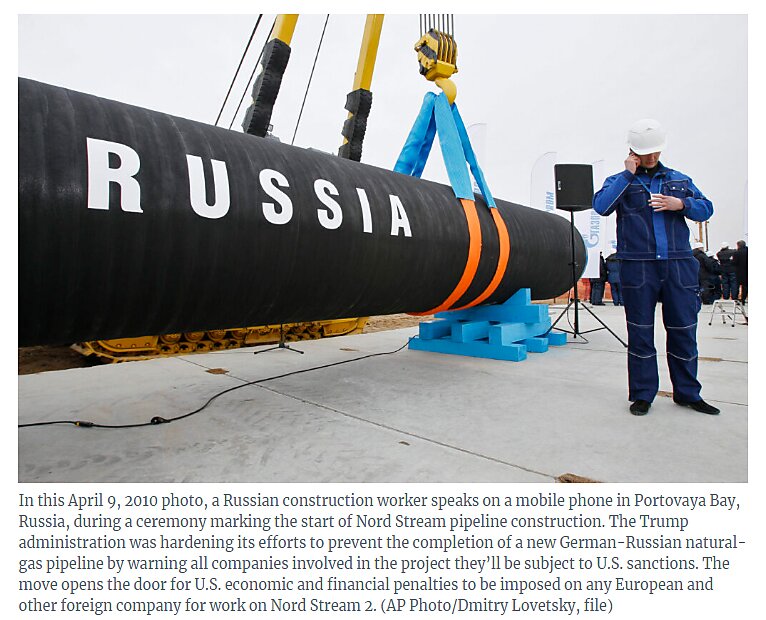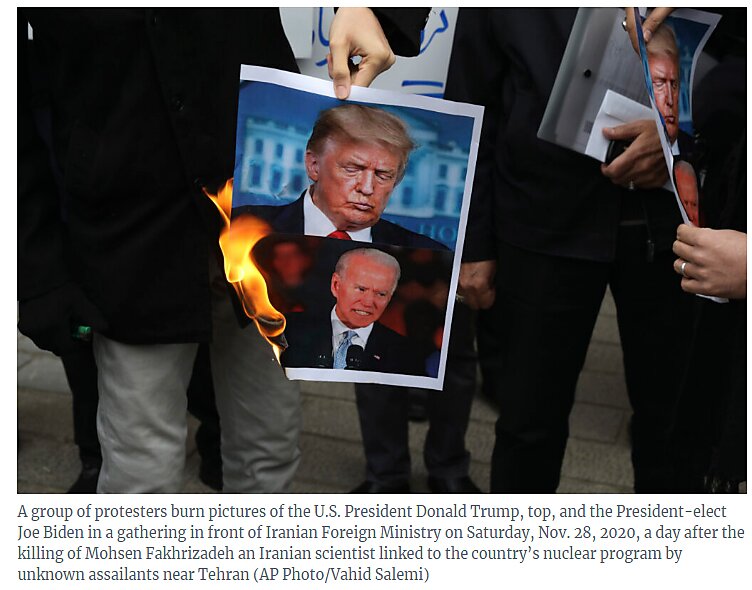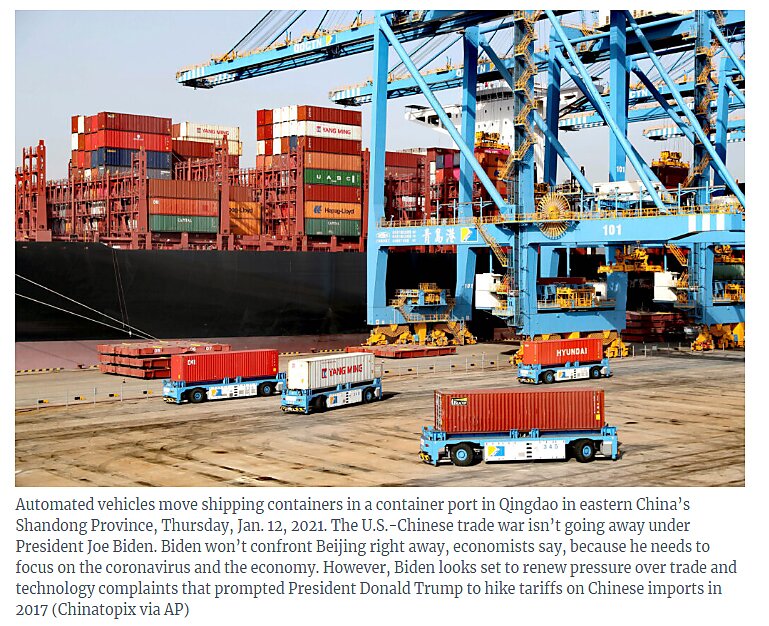President Joe Biden and his advisers repeatedly emphasize that a top priority of the new administration is to restore America’s international leadership and repair the transatlantic relationship that former-President Donald Trump weakened with his emphasis on an “America First” foreign policy.
The Biden Administration and Washington’s Continuing Rift with the European Allies
Despite clumsy blunders by both Beijing and Moscow toward Europe’s democratic nations, the long-term trend toward fully revived transatlantic solidarity under Washington’s dominant leadership is not favorable.
The Biden administration inherited an already contentious situation regarding Nord Stream 2. U.S. leaders exhibited unrelenting hostility to the pipeline from the moment construction began in 2011. The Obama and Trump administrations argued that the pipeline, running under the Baltic Sea to link Russia and Germany, would deepen the dependence of Germany and other democratic European nations on Russian energy supplies. That enhanced dependence, U.S. officials argued, would give Moscow geopolitical leverage to a dangerous extent over its western neighbors. Despite strenuous European objections, the U.S. Congress in 2019 and 2020 even authorized the imposition of sanctions in an effort to halt construction.

Rather than backing away from such a confrontational policy, Biden and his foreign policy team seem determined to escalate matters. On March 18, Secretary of State Antony Blinken issued a statement demanding that firms involved in the pipeline project immediately cease work. “As multiple U.S. administrations have made clear,” Blinken stated, “this pipeline is a Russian geopolitical project intended to divide Europe and weaken European energy security.” The following week, he explicitly warned German Foreign Minister Heiko Maas that sanctions against his country’s firms were a real possibility if construction of the nearly complete pipeline continued.
The reaction of Rainer Seele, the CEO of the Austrian energy firm OMV, to Blinken’s initial statement was typical. “This project is of great importance for the security of supply of the European gas market, it is therefore Europe’s responsibility to decide,” Seele told Austrian newspaper Wiener Zeitung. He added: “We have had a deep transatlantic friendship with the USA for decades. And friends shouldn’t threaten each other.”
Although there is opposition in Europe to Nord Stream 2 (especially in Ukraine, Poland and other East European countries), there also is considerable backing for the project—and mounting resentment at U.S. tactics. Despite both Moscow’s sometimes unsavory behavior and Washington’s growing pressure, the German government remains committed to the project.
Daniel R. DePetris, a fellow at the Defense Priorities think tank in Washington aptly summarizes the potential adverse outcome of the Biden administration’s current posture on Nord Stream 2. “The Biden administration came into office promising to repair and strengthen its alliances in Europe. But it is hard to see how to achieve that when this very same administration is open to waging economic warfare on European companies participating in Nord Stream 2. The White House must ask: Is taking a sledgehammer to the pipeline worth the damage to a U.S.-German relationship that weathered an intense amount of pressure over the previous four years?” Likewise, Daniel Benjamin, president of the American Academy in Berlin, notes that “For German politicians and business leaders who prayed for a Biden victory in the November elections — and, in some of the highest offices in the land, literally wept with joy during the new president’s inaugural address — the conflict over the pipeline has sparked fears that while Trump may be gone, America will remain a heedless and hostile partner.”
Transatlantic tensions also are resurging over policy toward Iran. European leaders reacted angrily when President Trump rescinded the U.S. commitment to the Joint Comprehensive Plan of Action (JCPOA)—the multilateral agreement restricting Tehran’s nuclear program—and they were pleased when Biden announced Washington’s intention to return to that agreement. However, the administration’s subsequent actions proved to be rather disappointing. Instead of merely resuming U.S. adherence to the JCPOA, administration officials insisted on negotiations with Iran over the specifics of that process. Worse, the Biden foreign policy team initially insisted that Iran take the first steps with respect to negotiations—although the administration has seemed to retreat from that stance.

The result has been an increasingly surly impasse between Washington and Tehran. Even some of the president’s progressive supporters in the United States are becoming impatient at the administration’s continued foot-dragging. As with respect in the case of Nord Stream 2, concerns are rising on both sides of the Atlantic that Biden’s Iran policy may be little more than “Trump lite.” The worries of European leaders increased when the administration rebuffed their pleas for Washington to rescind some sanctions on Iran. Discord on Iran policy threatens to abort a meaningful transatlantic reconciliation as the window of opportunity to revive the JCPOA appears to be closing.
Policy differences regarding China may have an even greater potential to exacerbate transatlantic tensions. Contrasting approaches arose even before the new administration took office. In remarks delivered on December 28, the president-elect stated that “as we compete with China and hold China’s government accountable for its abuses on trade, technology, human rights, and other fronts, our position will be much stronger when we build coalitions of like-minded partners and allies to make common cause with us in defense of our shared interests and values.” But just two days after Biden’s statement, the European Union signed a major investment deal with Beijing, even though the incoming administration’s policy team had urged the EU to delay taking action. Prominent RealityChek blogger Alan Tonelson contended that the EU’s action constituted a “punch in the mouth” from America’s European allies.
Resistance to Washington’s attempt to enlist Europe in a common front to contain Beijing’s growing power was increasingly evident during the Trump years, and that stance showed every sign of continuing. Both French President Emmanuel Macron and German Chancellor Angela Merkel openly spurned Biden’s suggestion to form an alliance of democracies against China.

The PRC’s own abrasive conduct toward Europe, though, may now be mitigating U.S.-European differences regarding China policy. In retaliation for relatively modest EU sanctions on four Chinese officials, Beijing responded with counter-sanctions against a far greater number of European diplomats, parliamentarians and academics. Furious members of the European Parliament subsequently threatened to kill the aforementioned EU-China investment agreement. France, Germany, Italy and other countries also summoned their ambassadors home from Beijing for consultations.
Nevertheless, Europe has little to gain by being caught in the middle of a growing confrontation between the United States and China largely involving strategic and economic issues in the western Pacific, and both European governments and European populations apparently understand that point. Despite clumsy blunders by both Beijing and Moscow toward Europe’s democratic nations, the long-term trend toward fully revived transatlantic solidarity under Washington’s dominant leadership is not favorable. Boston Globe columnist Stephen Kinzer’s conclusion seems accurate. “The United States, through the NATO alliance, has traditionally set European security policy and dictated to allies on important matters. That obedience reflex is now weakening.” In particular, “Europeans are seeking stronger ties to [both] Russia and China, often against Washington’s will.” How gracefully the Biden administration can adjust to that new, not entirely agreeable, reality will be a test of maturity and skill on the part of those officials.
